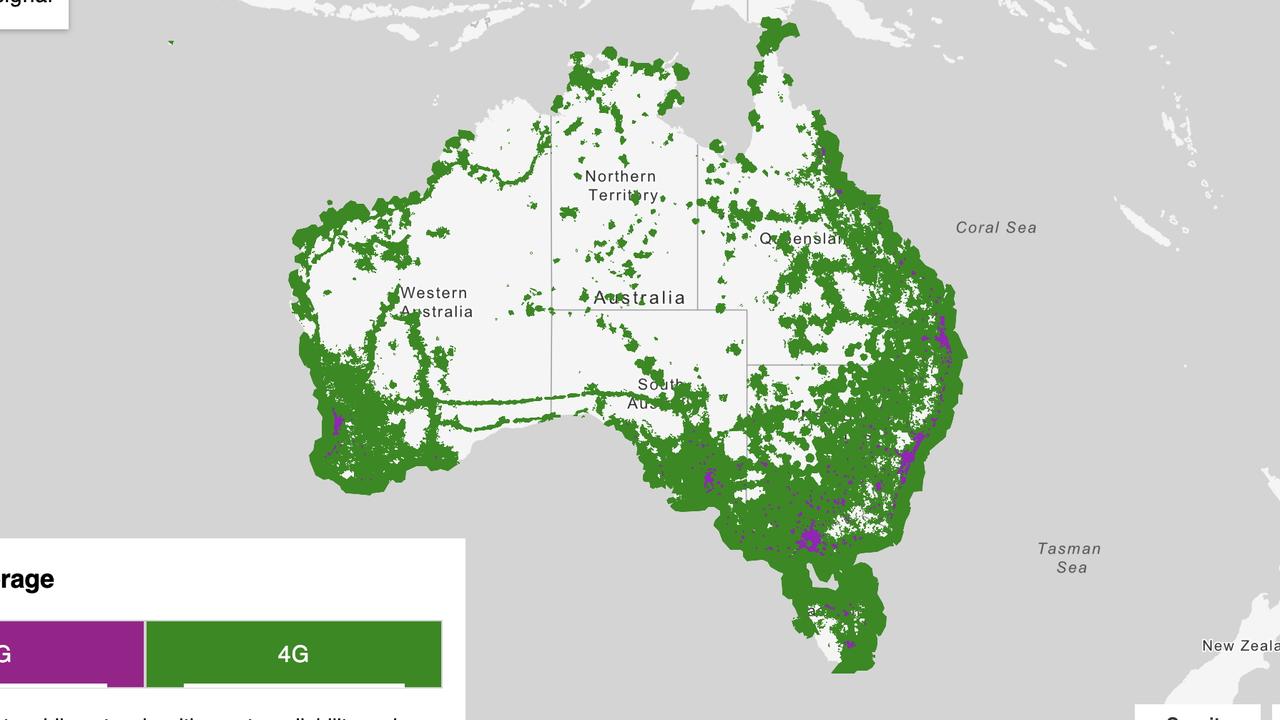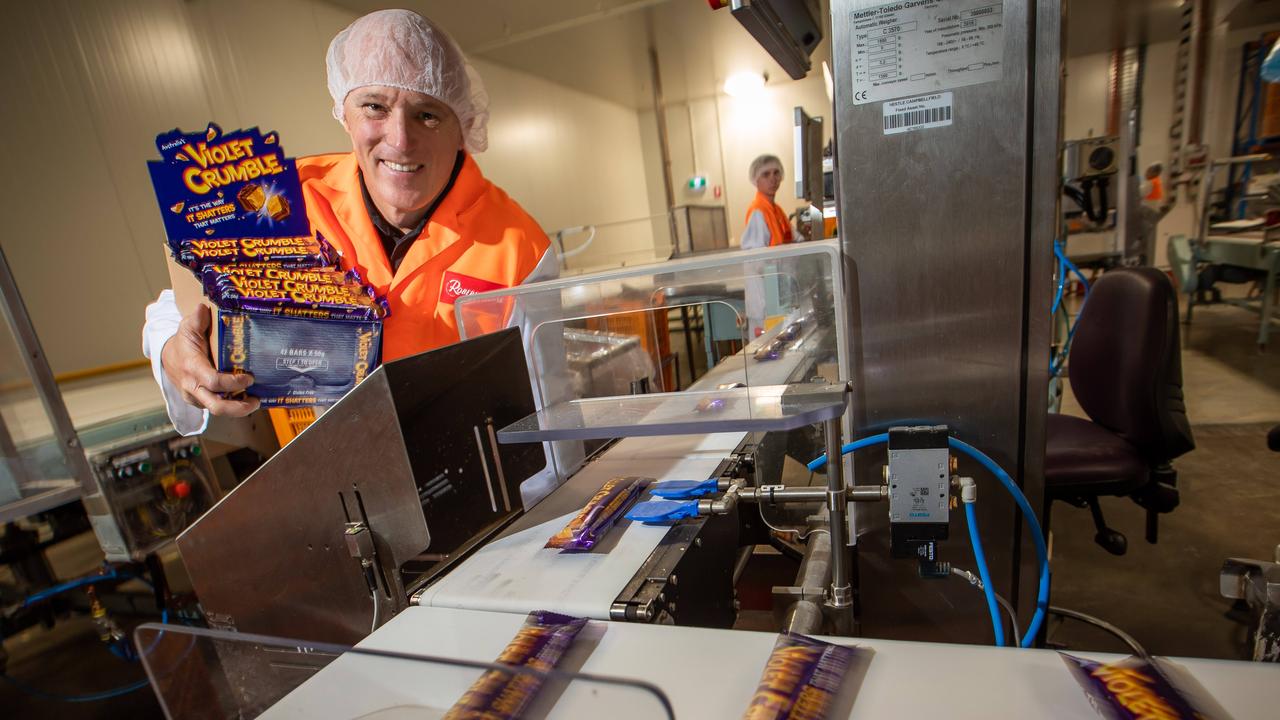New milk war erupts across Australia’s key dairy regions, hurting shoppers and Bega Cheese
Latest milk war is delivering farmers record prices but fuelling more hip-pocket pain at the checkout and curdling the profit of Bega Cheese.
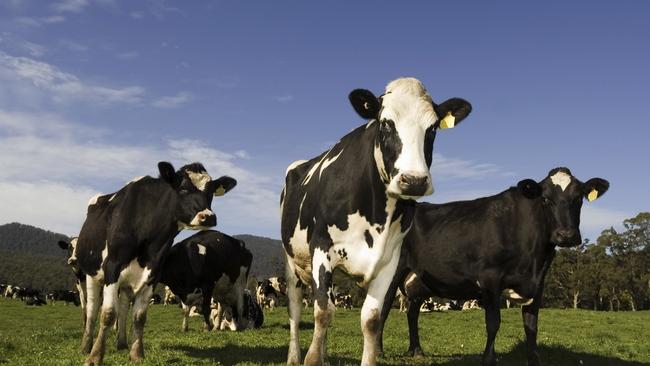
Business
Don't miss out on the headlines from Business. Followed categories will be added to My News.
A new milk war has erupted across Australia’s key dairy regions, delivering farmers record prices but fuelling more hip-pocket pain at the checkout and curdling the profit of Bega Cheese.
Competition for a shrinking national milk pool – including the rise of milk brokers – has pushed farm gate prices up 30 per cent, prompting Bega Cheese to issue a profit warning and its share price tumbling 8.5 per cent on Thursday to $3.25.
The company, which has been diversifying from dairy and diving deeper into brands to cushion itself against global commodity price volatility. But sourcing milk remains the company’s biggest input cost – with about 10 litres needed to make a kilogram of its namesake cheese.
Bega warned in April that pandemic costs, floods in various regions around Australia, Russia’s invasion of Ukraine and China’s aggressive lockdowns would wipe more than $40m to be wiped off full year earnings before interest, tax and amortisation.
In a statement to the ASX issued late on Wednesday evening, Bega executive chairman Barry Irvin said the company had managed to pass on these costs via higher wholesale and retail prices.
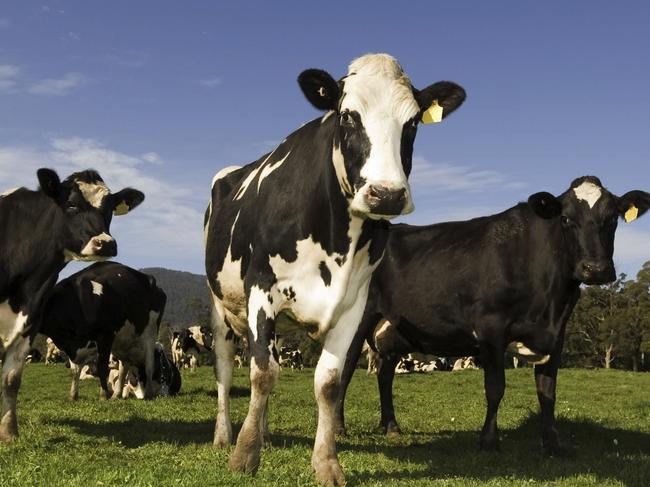
But Mr Irvin said “strong competition” in sourcing milk and subsequent record farm gate prices would deliver flat or lower earnings growth in the next 12 months and had already led to supermarkets and restaurants paying more for dairy products.
For the 2022 financial year, Bega is forecasting earnings before interest, tax, depreciation and amortisation to be $175m to $190m on a normalised basis. In the following year, it’s expecting EBITDA to be $160m to $190m.
“The farm gate price increases will benefit farmer suppliers, impact all Australian dairy companies, and is already being reflected in higher product prices in the retail and food service markets,” Mr Irvin said.
“Bega Cheese expects that the company’s FY2023 performance will be impacted by the delay in timing of some of these higher product prices and the finalisation of secured milk volumes during July.”
Bega announced in June a record average opening farm gate price of $8.40 a kilogram milk solids for the 2022/23 season. Mr Irvin said the farm gate price had surged an extra 30 per cent in the past month.
“Initial milk price announcements by Bega Cheese and other dairy companies on June 1 reflected this level of expected milk price increases.
“However, after the release of those initial prices there has been particularly strong competition amongst milk processors during June and July and farm gate prices in Victoria for FY2023 have further increased to a level of approximately 30 per cent higher than FY2022 price.”
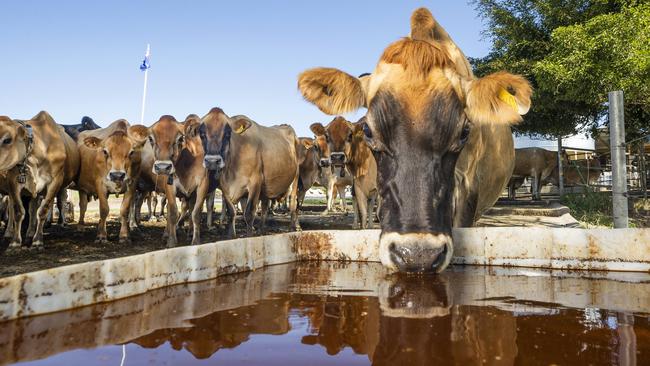
Australia’s milk pool has been decreasing steadily in the past decade, with farmers leaving the industry in the aftermath of the $1 a litre supermarket milk wars, drought and other difficulties on the land. While the supermarkets have long abandoned the fierce discounting strategy, the milk pool has yet to rebound with farmers facing higher input costs – such as fuel, feed and fertiliser – from Russia’s invasion of Ukraine.
At the same time, the way dairy companies source milk has been up-ended with the emergence of milk brokers, which act as a middle man buying milk directly from farmers and onselling into processors, adding further price pressure.
Meanwhile, dairy industry sources say supposedly well meaning strategies – like supermarket chains buying milk from farmers directly and processing it under contract – have begun eating into the profits of dairy companies, hindering their ability to pass on increased costs.
Barrenjoey analyst Josh Kannourakis lowered his price target for Bega from $5.25 to $4.40 a share but upgraded its rating for the stock to overweight from neutral.
“In our initiation (on June 2) we noted FY23e earnings risks were materially skewed to the downside due to supply pressures. However, we were positive on Bega’s medium-term outlook and future M&A optionality,” MrKannourakis wrote in a note to investors.
“Bega has now fallen about 25 per cent over this time frame. Our positive medium-term outlook is unchanged; and we believe earnings downside risks are already priced into expectations.
“We see minimal downside risks to the provided range. Valuation is attractive at current levels.”
Originally published as New milk war erupts across Australia’s key dairy regions, hurting shoppers and Bega Cheese




